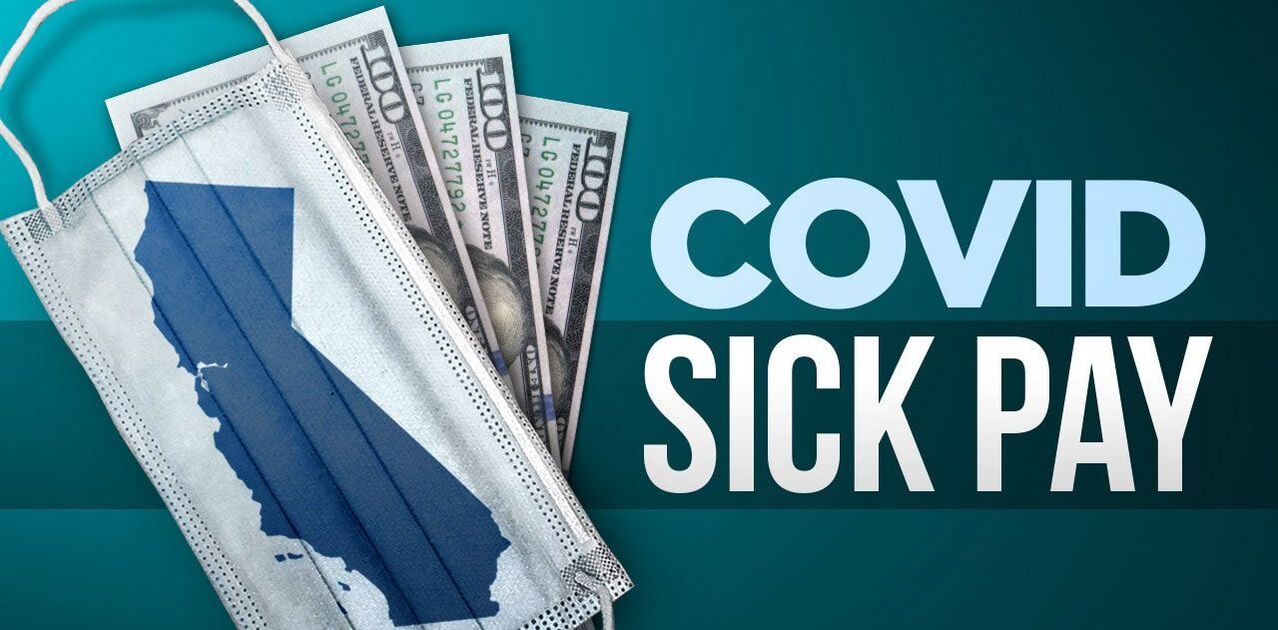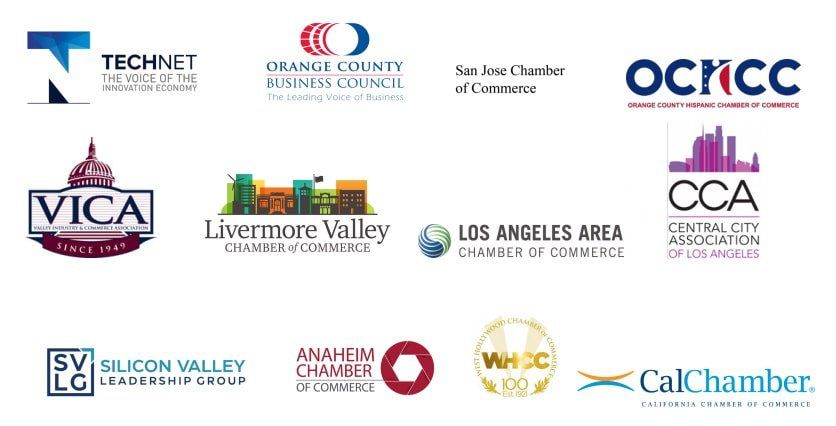ACCTION NEEDED to safeguard your private data from government agencies OPPOSE - SB 1276
April 23, 2022
OPPOSE - SB 1276
On behalf of the above coalition, we respectfully oppose
SB 1276
, which represents an unprecedented encroachment into consumer privacy and would be a reversal of California's leadership and direction on privacy over the last decade. While the bill espouses laudable goals of mobility planning and integration, equitable access, and safety, all of these goals can be accomplished without violating or circumventing existing laws protecting consumer privacy, contrary to what this bill proposes. This issue has been debated for years in the Legislature, and the proponents of this bill have yet to put forward one credible or specific use case in the public’s interest that requires unrestricted access to data about where individuals travel. This information is sensitive and appropriately protected by legislation that applies to both the public and private sectors.
SB 1276
seeks to remove those protections for vague and hypothetical purposes that could, without any oversight, facilitate the kind of pervasive surveillance over individuals that California has led the fight against.
Below, we have elaborated on why this is such a dangerous precedent, and importantly, why it runs counter to the public policy goals we share.
Scope and definitions are broad and inconsistent
Purpose limitation is foundational for any program, product, regulation, or law that would require additional data collection. The definitions of “shared mobility device,” “regulating agency,” “shared mobility service” and “deidentified shared mobility service data” in this proposed bill are so broad that, as written, it authorizes any agency citing a public purpose to collect the personal information of any individual— without their knowledge or consent. Further, the proposed bill states that “public agencies need personal information identifying drivers or users” for an equally vague set of objectives. The bill often cites broad policy areas, including safety, equity, and public health, as justification for unspecified and unlimited access to user information, despite the fact that each of these issues have important distinctions and rely on different types of data. Many policy goals related to equity and safety are best supported by aggregated data, which achieves dual goals of protecting privacy and increasing utility for policymakers. This bill, however, seems to encourage data overcollection, thereby increasing risks to consumers, businesses, and local governments that may or may not have the technical capability to protect this data from unauthorized use.
Fails to acknowledge that geolocation data is personal data
Location data is featured prominently in this bill as a notable feature of mobility data for which proponents seek to enhance government access. However, the precise location of an individual—whether they are in their personal vehicle, on a bike, on a trolley, or simply walking on the street—can reveal personal details about where that individual lives, who they visit, and which places they frequent. As a result of this, multiple state laws, including the California Privacy Rights Act, designate location as sensitive personal information, subject to heightened protections when it comes to collection, use, and retention. This bill not only fails to acknowledge the personal nature of geolocation data, it also seeks to degrade legal protections this type of data is afforded by existing privacy laws, such as the California Electronic Communications Privacy Act (CalECPA), which restricts government access to electronic information without a warrant or wiretap order. Indeed, the Office of Legislative Counsel issued a formal opinion which stated that the compelled sharing of real-time, precise geolocation data to the government requires a valid warrant or other due process and also testified in a Senate informational hearing in February 2020 stating the same conclusion. While it may be a useful tactic to shroud the personal nature of geolocation in a more innocuous definition of shared mobility data, it is nonetheless the most sensitive and personal aspect of mobility data and protected as such by existing laws. Furthermore, the bill cites the risk of third-party access to mobility data despite making it simple for any third-party “contractor” to gain access to this data; ironically, it also entirely fails to acknowledge the inherent risk in allowing government agencies to access this data. You will surely note that deidentified data is only mentioned in regards to further sharing mobility data with the public; it is entirely absent when discussing government access to mobility data, which implies that the bill’s proponents have every intention to allow agencies to collect re-identifiable information.
Lacks accountability, transparency, and redress for consumers
Perhaps the most problematic aspect of the bill is its failure to consider the rights and interests of consumers, whose personal data and mobility information it seeks to make widely available. There is no requirement for agencies to be transparent with users, nor does it include any requirement to make public a privacy notice outlining what data is being collected and how it is being put to use or protected. Consumers would have no opportunity to object to the collection of this data because they would be entirely unaware of it. Relatedly, the bill fails to provide any sort of oversight mechanism; cities have no legally enforceable obligations to protect the data or actually implement any of the technical or administrative safeguards that the bill purports to require. In other words, there are no consequences for the misuse, overcollection, or breach of information that agencies would be authorized to collect under this bill. Given the strides California has taken to be a nationwide leader in consumer privacy, this is a significant step backwards, especially considering the numerous stories that have emerged regarding the purchase and sale of personal information by government agencies. California should be seeking ways to bring more accountability to public sector data collection, not less.
In conclusion, protecting consumer privacy is a shared responsibility, as is protecting the safety of our consumers and the equitable distribution of mobility and delivery options. These policy goals should be clearly defined and established before proceeding to determine how data can be used to support those goals. This bill takes the opposite approach, proposing to remove legal protections from consumer data in order to enable direct access by governments before any concrete policy goals have been articulated, discussed, or shared publicly. Not only does that pose serious risks to the many consumers utilizing these mobility and delivery services, but it also sets a dangerous precedent for other types of data and industries.
We urge you to carefully consider the immediate consequences of this bill were it to pass, as well as the long-term harm this would create for consumers across the state for whom shared mobility is a critical part of their everyday life. For these reasons, we strongly oppose SB 1276 .
Below, we have elaborated on why this is such a dangerous precedent, and importantly, why it runs counter to the public policy goals we share.
Scope and definitions are broad and inconsistent
Purpose limitation is foundational for any program, product, regulation, or law that would require additional data collection. The definitions of “shared mobility device,” “regulating agency,” “shared mobility service” and “deidentified shared mobility service data” in this proposed bill are so broad that, as written, it authorizes any agency citing a public purpose to collect the personal information of any individual— without their knowledge or consent. Further, the proposed bill states that “public agencies need personal information identifying drivers or users” for an equally vague set of objectives. The bill often cites broad policy areas, including safety, equity, and public health, as justification for unspecified and unlimited access to user information, despite the fact that each of these issues have important distinctions and rely on different types of data. Many policy goals related to equity and safety are best supported by aggregated data, which achieves dual goals of protecting privacy and increasing utility for policymakers. This bill, however, seems to encourage data overcollection, thereby increasing risks to consumers, businesses, and local governments that may or may not have the technical capability to protect this data from unauthorized use.
Fails to acknowledge that geolocation data is personal data
Location data is featured prominently in this bill as a notable feature of mobility data for which proponents seek to enhance government access. However, the precise location of an individual—whether they are in their personal vehicle, on a bike, on a trolley, or simply walking on the street—can reveal personal details about where that individual lives, who they visit, and which places they frequent. As a result of this, multiple state laws, including the California Privacy Rights Act, designate location as sensitive personal information, subject to heightened protections when it comes to collection, use, and retention. This bill not only fails to acknowledge the personal nature of geolocation data, it also seeks to degrade legal protections this type of data is afforded by existing privacy laws, such as the California Electronic Communications Privacy Act (CalECPA), which restricts government access to electronic information without a warrant or wiretap order. Indeed, the Office of Legislative Counsel issued a formal opinion which stated that the compelled sharing of real-time, precise geolocation data to the government requires a valid warrant or other due process and also testified in a Senate informational hearing in February 2020 stating the same conclusion. While it may be a useful tactic to shroud the personal nature of geolocation in a more innocuous definition of shared mobility data, it is nonetheless the most sensitive and personal aspect of mobility data and protected as such by existing laws. Furthermore, the bill cites the risk of third-party access to mobility data despite making it simple for any third-party “contractor” to gain access to this data; ironically, it also entirely fails to acknowledge the inherent risk in allowing government agencies to access this data. You will surely note that deidentified data is only mentioned in regards to further sharing mobility data with the public; it is entirely absent when discussing government access to mobility data, which implies that the bill’s proponents have every intention to allow agencies to collect re-identifiable information.
Lacks accountability, transparency, and redress for consumers
Perhaps the most problematic aspect of the bill is its failure to consider the rights and interests of consumers, whose personal data and mobility information it seeks to make widely available. There is no requirement for agencies to be transparent with users, nor does it include any requirement to make public a privacy notice outlining what data is being collected and how it is being put to use or protected. Consumers would have no opportunity to object to the collection of this data because they would be entirely unaware of it. Relatedly, the bill fails to provide any sort of oversight mechanism; cities have no legally enforceable obligations to protect the data or actually implement any of the technical or administrative safeguards that the bill purports to require. In other words, there are no consequences for the misuse, overcollection, or breach of information that agencies would be authorized to collect under this bill. Given the strides California has taken to be a nationwide leader in consumer privacy, this is a significant step backwards, especially considering the numerous stories that have emerged regarding the purchase and sale of personal information by government agencies. California should be seeking ways to bring more accountability to public sector data collection, not less.
In conclusion, protecting consumer privacy is a shared responsibility, as is protecting the safety of our consumers and the equitable distribution of mobility and delivery options. These policy goals should be clearly defined and established before proceeding to determine how data can be used to support those goals. This bill takes the opposite approach, proposing to remove legal protections from consumer data in order to enable direct access by governments before any concrete policy goals have been articulated, discussed, or shared publicly. Not only does that pose serious risks to the many consumers utilizing these mobility and delivery services, but it also sets a dangerous precedent for other types of data and industries.
We urge you to carefully consider the immediate consequences of this bill were it to pass, as well as the long-term harm this would create for consumers across the state for whom shared mobility is a critical part of their everyday life. For these reasons, we strongly oppose SB 1276 .
SB 1276 will heard in the Senate Judiciary Committee this coming Tuesday, April 26. The committee begins at 10 AM and bills will be heard in file order. SB 1276 is number 27 on the
agenda
.
We would like to invite you to dial-in to the committee hearing when SB 1276 is up for a vote so that you can express your opposition to the full committee during the "me too" portion of the hearing.
Call-in information will be posted the day before the hearing HERE
We would like to invite you to dial-in to the committee hearing when SB 1276 is up for a vote so that you can express your opposition to the full committee during the "me too" portion of the hearing.
Call-in information will be posted the day before the hearing HERE
A Plan That Fits Your Business Needs

Many California workers will be eligible for COVID-19 supplemental sick leave under a bill signed Wednesday by Gov. Gavin Newsom that extends the paid time off through the beginning of this fall.Here’s what to know about Assembly Bill 84.Who does this cover?The new law only applies to businesses with 26 employees or more, and covers workers who are unable to work or telework for COVID-related reasonsWhat do workers get?Under the bill, employers will be required to give workers as much as [...]

The City of West Hollywood has ratified an Emergency Executive Order and approved a Resolution to implement COVID-19 vaccine verification requirements, which will apply to Covered Businesses and City Facilities.The Emergency Executive Order was first issued by the City of West Hollywood’s City Manager on September 10, 2021, following the direction of the West Hollywood City Council.After issuance of the City’s Order, the LA County Health Officer issued, on September 17, 2021, simila [...]
At today's LA County BOS meeting, the Board of Supervisors supported Dr. Barbara Ferrer's recommendation to move forward with the vaccine mandate. Here is the presentation from the Public Health Dept, with the recommendations on the final page (page 17). The update HOO is expected to be released by the end of this week. The first vaccination dose will be required by October 7 and the second by November 4. Here are the specifics: Require vaccine verification or a negative te [...]
New applicants for California’s Small Business COVID-19 Relief Grant Program will be able to apply in the funding round opening on September 9 and continuing through September 30. The program provides grants of $5,000 to $25,000 to small businesses hurt by the pandemic. Businesses are eligible based on annual revenue as documented in their most recent tax return.New funding rounds were made possible by an additional $1.5 billion in funding authorized in a relief package signed by [...]

Proof of vaccination against COVID-19 or a negative COVID-19 Test will be enforced at the following businesses in an effort to protect staff, customers, and the community.The Abbey Food & BarBeaches WeHoBliss Blessing Wellness SpaThe Chapel at The AbbeyThe Comedy StoreConservatoryThe Formosa CafeHarloweHi TopsKitchen24Matthew Miller Skincare PUMP RestaurantRevolverSparadise Massage & Wellness Center Tom TomTrunksAs you may already be aware, a group of anti-vaccination p [...]
Dear Businesses & Residents, Just as local businesses work to make a post-pandemic recovery, the West Hollywood City Council is considering a destructive hotel ordinance that harms workers, businesses, city services and devastates our local economy, making a full recovery out of reach for hotels, restaurants, and other businesses that depend on tourism. We need your help today to stop this out-of-step proposal, pushed by special interests before it’s too lat [...]


